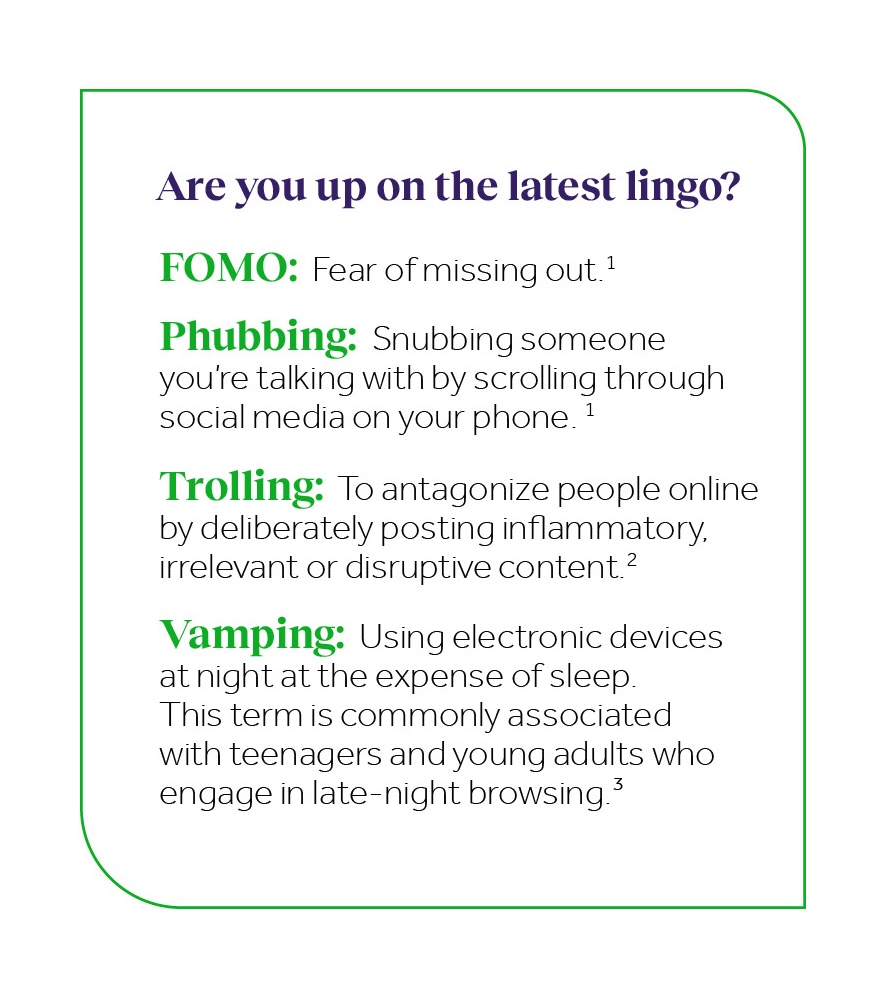How social media affects mental health

Is social media a positive or negative influence on overall mental health? The jury is out.
Today, nearly everyone uses social media. Facebook, Instagram, TikTok and YouTube are the most popular. Increasingly, we use them to entertain or distract ourselves and to stay connected to friends and family. Young people use social media to connect with their real-life and virtual communities.
Social media can provide a distorted view of reality.
When you see photos and posts that seem to paint a picture of “perfect people” living “perfect lives,” it may be hard to feel like you’re measuring up. Remember: What you see on social media isn’t always true, nor is it always as it appears.
Here are some tips to protect your mental health while posting and scrolling:
- Take a time out Track how many hours you spend on social media. If you’re spending more time on Facebook than face-to-face time with people, give yourself a time out.
- Less is more The American Psychological Association recently reported that reducing social media use by 50% for a few weeks made a big difference with teens and young adults. They saw significant improvement in how they felt about both their weight and their overall appearance compared with peers who maintained consistent levels of social media use.4
- FOMO has got to go It is important to remember (and reinforce often) that everyone has highs and lows in life, just like you. Many only post selfies when they seem happy and carefree.
- Be mindful Be conscious of what you're doing. Set boundaries. Don't watch TikTok videos when you should be sleeping. Put your smartphone away when you're talking with friends.
With a little guidance and help, you can start to wean yourself off those puppy memes—and get a good night’s sleep.
At some point, we all have struggles with our mental health. Learn to recognize what mental health distress looks like in others.
1https://www.frontiersin.org/articles/10.3389/fpsyg.2021.678766/full
2https://www.merriam-webster.com/dictionary/troll
3https://www.psychologytoday.com/us/blog/the-moment-youth/201804/is-your-teen-vamping-instead-sleeping
4https://www.apa.org/news/press/releases/2023/02/social-media-body-image
You may not be eligible for all services. Log in to view the benefits included in your plan.
Was this article helpful?
Don't wait! Unlock a healthy, happy new year, at no cost to you.
This content is not intended to be a substitute for professional medical advice, diagnosis or treatment. Always seek the advice of your physician or other qualified health provider with any questions you may have regarding a medical condition.
